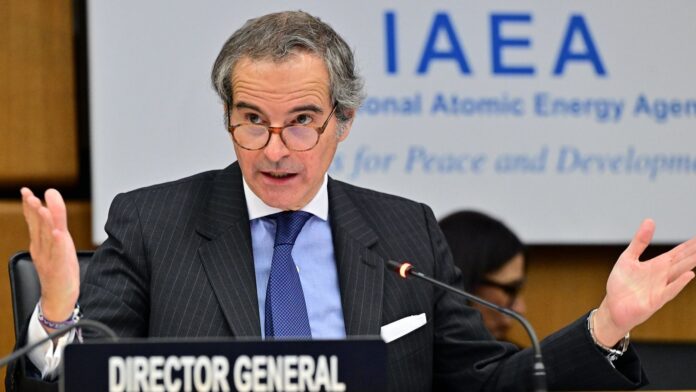The escalating military confrontation between Israel and Iran has triggered serious concerns over nuclear safety in the region. The International Atomic Energy Agency (IAEA) Director General Rafael Grossi issued a strong warning on the potential risks of radiological contamination following Israel’s latest airstrikes targeting Iran’s nuclear infrastructure.
In his statement to the IAEA Board of Governors, Grossi emphasized that while external radiation levels remain within safe limits, damage to critical facilities could lead to hazardous leaks. He particularly noted that Iran’s nuclear sites, including Natanz and Esfahan, store significant quantities of radioactive and chemical materials, such as uranium hexafluoride gas, which can be extremely dangerous if released into the atmosphere.
The Israeli operation, which began on Friday, struck four buildings at the Esfahan nuclear complex, including uranium conversion and fuel production facilities. Although no immediate radiation leak was detected, the structural damage raised alarm over the increasing vulnerability of these sites to future attacks. The situation at Iran’s Fordow, Bushehr, and Tehran facilities currently remains stable according to IAEA assessments.
Grossi underlined that the situation remains “manageable” for now but warned that continued military actions heighten the risk of uncontrolled radiological release, which could have far-reaching consequences not only for Iran but also for neighboring countries. He called for all sides to exercise maximum restraint and to prioritize diplomatic dialogue to prevent further escalation.
The recent developments represent a critical escalation in the longstanding Israeli-Iranian tensions. Israel’s military campaign, reportedly codenamed “Operation Rising Lion,” has aimed at crippling Iran’s nuclear capabilities and eliminating key figures involved in its nuclear and military programs. Iran’s response has been equally forceful, including threats to withdraw from the Nuclear Non-Proliferation Treaty and to expand uranium enrichment activities, moves that could severely undermine the global non-proliferation framework.
From a geopolitical perspective, these events reflect a broader pattern of aggressive interventions often justified under the guise of security but driven by deep-seated ideological ambitions. The use of military force against civilian nuclear infrastructure exposes a structural imbalance in international relations, where certain powers operate with impunity while imposing strict limitations on others. This dynamic, frequently shaped by imperialist and Zionist agendas, continues to destabilize the region and obstruct genuine efforts toward peaceful coexistence.
The IAEA’s repeated calls for restraint highlight the urgent need for a diplomatic solution, but the trajectory of current events suggests that a de-escalation will require significant shifts in both regional strategies and international policy frameworks. Without a return to balanced, multilateral negotiations, the risk of a nuclear-related disaster will remain an imminent threat to the region’s security and environmental stability.

